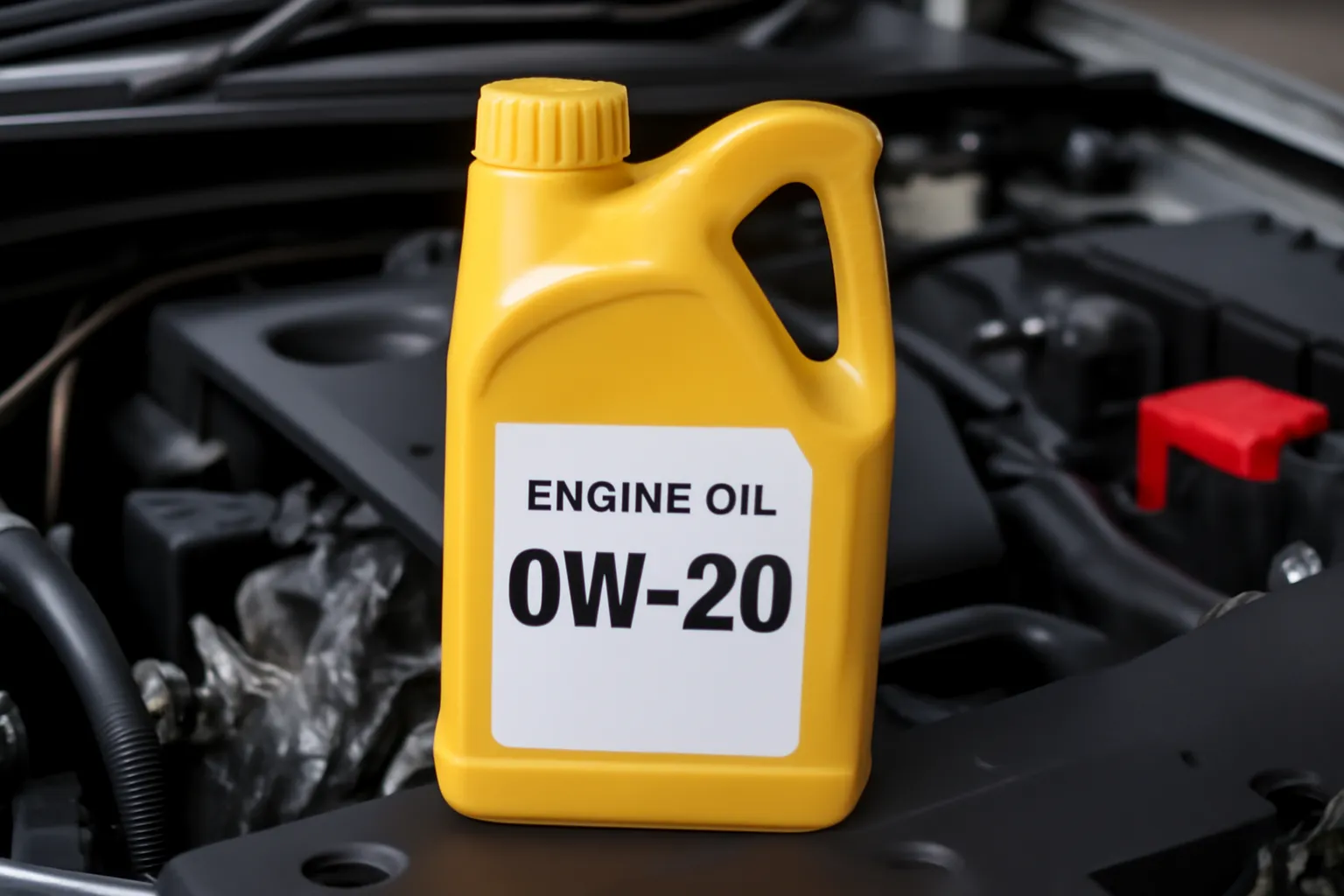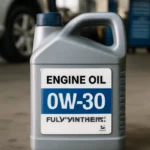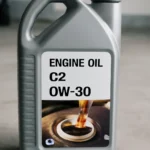Engine oil is one of the most crucial components for keeping your vehicle running smoothly. Among the many types available, 0W-20 engine oil has gained significant popularity for its ability to provide excellent performance in various conditions. Whether you’re looking to understand its benefits, how it works, or how to use it properly, this article will cover all aspects of 0W-20 engine oil and its significance for your vehicle.
What is 0W-20 Engine Oil?
0W-20 engine oil is a multi-grade oil commonly used in modern vehicles. The “0W” refers to its viscosity at low temperatures, while the “20” indicates its thickness at operating temperatures. This type of oil is designed to flow smoothly in both cold and hot conditions, ensuring optimal engine performance.
The primary feature of 0W-20 engine oil is its ability to maintain fluidity in cold weather, which helps in faster starts and reduces wear during engine start-up. The “W” stands for “winter,” and the 0W rating means that the oil can function effectively in extremely cold temperatures. On the other hand, the “20” indicates that the oil has the right viscosity for high-temperature performance, maintaining engine protection even under heat.
Many automakers recommend 0W-20 oil for vehicles that require low viscosity oils for fuel efficiency and engine longevity. It’s especially beneficial for newer, fuel-efficient engines and hybrid vehicles. If you’re unsure whether 0W-20 is right for your vehicle, always consult the owner’s manual for manufacturer specifications.
How Does 0W-20 Work in Your Engine?
The effectiveness of 0W-20 engine oil lies in its ability to work well across a range of temperatures. Let’s break down how it performs in different conditions:
-
Cold Start Performance
One of the key benefits of 0W-20 oil is its performance in cold temperatures. When temperatures drop, conventional oils can become thick and sluggish, which increases engine wear at startup. Since 0W-20 is formulated to flow more freely, it ensures a quicker and smoother start, especially in cold weather. -
High Temperature Performance
Once your engine reaches operating temperature, 0W-20 oil provides consistent lubrication, reducing friction between engine parts. The “20” rating indicates that the oil is thin enough to reduce friction and improve fuel efficiency, yet thick enough to protect critical engine components like pistons, valves, and the crankshaft from wear. -
Fuel Efficiency
Low-viscosity oils like 0W-20 are designed to improve fuel efficiency. By reducing friction and enabling the engine to work more smoothly, it allows your vehicle to consume less fuel, which is beneficial for both the environment and your wallet.
In essence, 0W-20 is designed to protect your engine while promoting better fuel efficiency and ensuring a longer lifespan for engine parts. It’s an oil that balances protection with performance, making it an excellent choice for most modern vehicles.
Why Choose 0W-20 Engine Oil?
The decision to choose 0W-20 engine oil comes down to several key benefits:
1. Enhanced Fuel Economy
With its lower viscosity, 0W-20 oil reduces the energy required to pump the oil through the engine, which leads to better fuel efficiency. This makes it a popular choice for eco-conscious drivers looking to reduce fuel consumption.
2. Cold Weather Benefits
As mentioned, 0W-20 performs better in cold temperatures, which is especially important if you live in colder climates. In extreme cold, traditional oils can become too thick, causing more strain on the engine. 0W-20 ensures that your vehicle runs smoothly even when temperatures plummet.
3. Improved Engine Longevity
Because of its ability to reduce wear and tear, 0W-20 helps extend the life of your engine. It protects moving parts from friction, corrosion, and heat, which means fewer breakdowns and repairs down the line.
4. Manufacturer Recommendations
Many modern vehicles, especially those with fuel-efficient engines, are designed with 0W-20 oil in mind. The oil is optimized for these cars’ specific needs, so using the correct oil ensures you’re following manufacturer guidelines.
5. Low Emissions
Low-viscosity oils like 0W-20 contribute to lower emissions because they help the engine run more efficiently. This is particularly important for those who own hybrid or electric vehicles that require environmentally friendly options.
If you’re looking to improve your vehicle’s performance, save money on fuel, and extend the life of your engine, 0W-20 engine oil is an excellent choice. To find the best 0W-20 engine oil for your vehicle, always look for products that meet the specifications set by your car’s manufacturer.
👉 Learn more about 0W-20 engine oil here 👈
Conclusion
In conclusion, 0W-20 engine oil is a versatile and highly effective oil that offers significant benefits for modern engines. It’s designed to perform well in both cold and hot temperatures, providing smoother starts, improved fuel efficiency, and longer engine life. Whether you’re driving a fuel-efficient car, a hybrid, or a high-performance vehicle, 0W-20 is an excellent choice to ensure your engine remains well-lubricated and protected.
So, the next time you’re getting an oil change, consider making the switch to 0W-20 if your vehicle’s manufacturer recommends it. You’ll enjoy better fuel economy, a smoother ride, and enhanced engine longevity. Keep your engine in top shape, and it will thank you for years to come!






